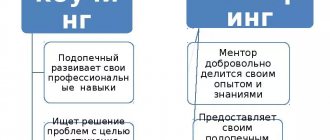The essence of the problem of attention. Inattention when reading can be expressed in the fact that when you read, you have to return to the previous sentence, since you mechanically read it, but did not understand the meaning. The more often you return, the lower your speed. Therefore, the first step to increasing your reading speed is to work with your attention and concentration when reading.
Attention and interest.
Often you yourself may have noticed that in the first minutes of reading the process goes much slower than half an hour after the start. You seem to be “accelerating”. In fact, your attention level increases. Especially if the book is interesting and you are captivated by the plot. The more interesting a book is to you, the greater your attention and the faster you read.
- But is it possible to make sure that attention is concentrated on the text, even not the most interesting, in the first minutes, which will undoubtedly increase the reading speed?
- Can! Try the following exercises and suggestions.
Recommendation 1.1. Games
Try to always find something interesting in your routine, turning any action into a game. This is what good parents do who want their child to do some boring work. Games are characteristic of many living beings; it is embedded in us at the genetic level.
Excitement is important in the game!
Excitement (French hasard) - passion, enthusiasm, passion, excessive ardor. (Great Soviet Encyclopedia). To create a gambling game based on the upcoming reading process, you must decide on the rules of this game and establish clear conditions for winning this game. If this is difficult for you, you can use the examples and recommendations below.
Competitiveness. For example, if you are reading a textbook before an exam, you can have a competition with your friends to see who can read the textbook the fastest or who can answer the most questions from the textbook that you can ask each other. Competitiveness in the educational process is the main weapon of a teacher (I know from my own experience), which can increase interest in the learning process. The vast majority of people are passionate about trying to “be better” than their opponent. Therefore, individual lessons are not as effective as group lessons. And in reading you can find your opponent!
Personal records. Another factor that creates excitement when reading can be the struggle with oneself to achieve a certain result. For example, when reading a book, you can measure your reading speed, say the number of pages per hour, then try to beat your own record. Personal records can be set in speed, in the number of pages, in the number of books, in the material mastered, and much more.
Presentation about what you read
To remember what you read in a book, tell your friends about it.
Many Smart Reading clients host internal workshops where employees share book finds and tell stories. You can conduct similar seminars among your friends or even family members.
So, if you write a short summary of our advice, you will get the following:
- Don’t hoard books, read them at least 30 pages every day.
- Judge a book by its first 50 pages.
- Feel free to try different genres and alternative formats.
- Be sure to write down quotes and take notes.
- Share them on your blog and make presentations for colleagues and friends.
Recommendation 1.2. Motivation
Try to motivate yourself that the material you are reading can be useful to you. Try to list all the possible benefits that reading the text will give you. They may not be significant, but the main thing is to find them. Then visualize it, daydream, and start reading.
Even if this is a boring textbook that you need to read to prepare for an exam, you should understand that this knowledge will be useful to you and, in the end, a good grade in the subject will at least make your mother happy.
Mixing genres
Everyone has their favorite genres. However, if you delve too deeply into detective novels or business literature, you will become oversaturated. Even great books will cease to please.
In this case, it is useful to change the genre. Stir books like cocktail ingredients. After non-fiction, read a volume of Russian classics. After that - science fiction, and then a book on negotiations.
The ability to alternate literary genres is a great way to stay on your toes and develop your reading horizons.
Exercise 1.3. External stimuli
Some people have one very important ability: they can do something when there is noise and turmoil around them. Often this is a matter of habit, for example, when a person lives in a small apartment or dormitory, and he has to adapt to difficult conditions and be able to study without paying attention to anything.
Difficult conditions make a person more attentive, teach him to disconnect from external stimuli and do what he needs.
Try to artificially create difficult conditions for yourself, try to concentrate on reading while you are listening to music, when people are walking around. Go outside in the park on a day off and read on a bench, trying not to pay attention to others and passers-by.
How to stop being distracted?
1) Turn off gadgets (and also close unnecessary browser tabs) when you need to concentrate
If you constantly find yourself picking up your smartphone to distract yourself from something important or to relieve boredom, you are most likely addicted. And you need to fight it in the same way as with other addictions, like smoking:
- gradual reduction of time spent online (note how much time you usually spend on social networks, and start by reducing this time by at least half an hour)
- schedule (choose the time that you can devote to social networks. For example, it could be 15 minutes in the morning and 15 minutes after work.
- If you feel bored, do something useful. For example, read a book that you have been putting off for a long time. You can create a whole list of things that you can do when you want to switch.
2) Make a plan
You've heard this advice many times, it sounds corny, but it works. Tired of being distracted by trifles? Then a plan and a clear schedule are your salvation:
- Plan 3 work tasks that you need to complete during the day. Not more. Don't spray yourself.
- Plan your vacation and time with friends and family
- plan time for physical activity
- Having made a plan, see if all the areas of life that are important to you are included there? Are you turning into a person who is always busy with work at the expense of family or friends?
3) Refuse to work that does not inspire you
Don't agree to take on tasks for which you don't have the time or energy. Even if you want to help a very good person. Remember that you have a plan and personal goals that are more important to you than trying to be convenient for everyone.
Learn to say “no” and not take on unnecessary burdens. Don’t be afraid to offend people by refusing: it will be better to refuse the job right away than to promise and not deliver (or not meet the deadline and break the agreement).
4) Monitor your energy levels
It's very difficult to concentrate on one task if you feel like a dead battery and suffer from lack of sleep. How to remain an energetic person throughout the day? You almost certainly already know the ingredients for this recipe:
A) adequate sleep. You won't be able to stay in good shape if you sleep 3-4 hours a day. Therefore, take care of yourself and have a comfortable sleep. If you're having trouble falling asleep, try these tips:
- turn off gadgets and do not work at the computer at least 2-3 hours before bedtime
- before bed, try meditating, listening to relaxing music, or reading paper books
- 4 hours before, try not to eat heavy food
- If you can't sleep, don't toss and turn in bed. Try getting up, going into another room and reading for a while.
B) balanced diet . If you eat fast food, if your diet includes a large amount of carbohydrates, it is not surprising that you feel a constant loss of energy.
- include natural foods in your diet and avoid processed foods
- try to eat more protein and reduce carbohydrates
- drink more water
- do not overuse coffee. 2-3 cups per day is more than enough.
B) physical activity . Choose the type that makes you happy. If you don't like the gym, walk more, play football or basketball, swim, dance. Working with a trainer gives good results - this way you will study competently and will not be able to shirk.
5) Do something that brings you joy
No one forces you to spend your life in a job you don’t like, doing something that only brings melancholy and apathy. Think about what you would really like to do? Perhaps you are ready for more responsible tasks? Perhaps it's time to change your job or profession?
Perhaps you can launch your own online school or become a sought-after specialist in the world of online education and finally work with pleasure? The choice is yours.
We train in-demand specialists in the “Online Course Methodist” course.
6) Find out what activities help you focus
Some people work well in a noisy room, while others can only concentrate in complete silence. The Pomodoro technique suits some (25 minutes per task and a 5-minute break), but not others. Find out what helps you focus.
7) Don't forget to rest
Take a 5-minute break if you feel like your thoughts are running wild. Spend your weekends away from work tasks (and, if possible, away from gadgets and social networks). Without proper rest, you will not be able to concentrate on important tasks.
In the book you will find many more tips and stories from the author’s practice. Enjoy reading!
Exercise 1.4. A state of trance
The state of trance , according to the observations of hypnosis specialist M. Erickson, is characterized by increased attention, the ability not to react to external stimuli, as well as the ability to ignore signals from some sensory organs. Thus, in a state of trance, a person can take a position that is uncomfortable in a normal state, and spend quite a long time in this position.
For example, reading an interesting book and crossing your legs, after half an hour during the break you may find that one leg is very numb. But while reading, you didn’t think about your leg, you were in a state of heightened attention to the book, your visual perception worked so strongly that signals from other senses were simply not perceived by the brain.
You can read more about entering a trance state here.
What's Wrong with Our Attitude to Focus?
We constantly hear that modern people have forgotten how to concentrate. And that it is the ability to focus and work deeply that separates the successful from the mediocre. It seems to me that this approach puts a lot of pressure and causes shame.
Admitting that your attention span is like declaring that you are a failure. After all, who wants to think of themselves as one of those people who gets distracted by nonsense and can't focus on their goals. As a result, many people simply deny that they find it difficult to concentrate.
But what if we evaluate concentration purely from a practical point of view, forgetting about the culturally praised “moral superiority” of those who know how to remain undistracted for long periods of time? This became the starting point for improving my own concentration. I was inspired by a passage from Chris Bailey's book Hyperfocus.
“As I spent years researching this issue, I discovered that the word ‘productivity’ has acquired additional meanings,” he writes. “It’s usually associated with something cold, corporate and overly focused on efficiency. I prefer another, friendlier definition: being productive means achieving what we set out to achieve. If we planned to write three thousand words, give a presentation to management, and sort out email in a day and successfully accomplished all of this, we were productive. Likewise, if we were going to have a relaxing day and really do nothing, we were productive again.”
From the same book, I learned that it is intention—what I concentrate on—that fuels attention.
To increase the duration of concentration, you need to know why it is important for me. It's just pointless to train her.
We'll get to practical advice, but first we'll talk about this:
- What is happening now with our ability to concentrate (let's debunk the popular comparison with a goldfish).
- What are the real reasons that prevent us from concentrating (spoiler: technology has nothing to do with it).
- How our attention works (and how to use it to your advantage).
The article is long, but let this be a preliminary concentration test for you. Maybe by the end you'll find that it's not so bad.
Exercise 1.5. N-back game
The n-back task is a continuous performance task used in the field of neurophysiology and designed to activate certain areas of the brain, and is also used in psychology to assess and develop the ability to concentrate, logical thinking, working memory and fluid intelligence in general. In the game, cards will be shown to you in order and you will have to determine whether the same card was shown last time.
Statistics Full screen
***
Additionally. To get rid of constant returns to what you have already read (regressions) in order to understand the meaning, you may also find the exercises from Lesson 2 and Lesson 4 useful. Getting rid of articulation will allow you to equate the concepts of “read” and “understand” the text, since you will not mechanically pronounce read to yourself, which means you will not read separately from understanding and creating sensory images of what you read. The material in Lesson 4 is aimed at training the skill of searching for the necessary information in the text, which can also help you not to return to what you have already read.
Note.
If you think that the proposed exercises are too easy for you, then you can move on to the next lessons. After all, each person is individual, and different skills can be taught in different ways: some are a little easier, others a little more difficult.
Evgeny BuyanovDmitry Geraskin
← Speed reading Suppression of articulation →
The benefits and advantages of speed reading
Speed reading is a useful skill for anyone who needs to develop as a person. Think about a book that has had the greatest influence on you. Now imagine how your life would change if you didn’t read it...
Ways to read faster and remember more
“But the most important thing I want to say is that you should always have a constructive purpose for reading that helps you understand why you are reading and how to apply the information you learn.”
Pavel Palagin
If it only takes one book to change your life, what can thirty books do?
When you learn to read quickly, you increase the likelihood that you will encounter some great book that can change everything. Imagine being able to read ten, twenty, or thirty books a year without having to spend a ton of time reading!
Disadvantages of Traditional Reading
Scientists have spent a long time investigating the question of why people read so slowly, and they were able to identify five main disadvantages of slow traditional reading:
- Reading regression, that is, the constant return of the eyes to already read lines for the purpose of re-reading. Most of us return, and even more than once, to the starting position of the text we read. This lack of self-confidence leads to the fact that the lines read are never remembered. Repeated returns destroy the integrity of the read text.
- Lack of reading program. We are used to reading as we have to. But there is some literature that is really worth reading slowly and carefully. And vice versa, literature that needs to be read quickly, and its majority.
- Pronouncing the text being read to oneself, that is, articulation. People spend a sufficient amount of time on this process, since an inertial hearing analyzer is connected.
- Low field of view. The eyes perceive a maximum of three words when they stop on the text, and the speed reading technique involves covering the entire page at once. Vertical eye movement is the basis of fast reading.
- Lack of attention, which is a catalyst for the reading process. We can read even when our thoughts are somewhere far away.
Speed reading exercises help eliminate those shortcomings that we make when reading books traditionally. The speed reading technique creates new, fundamentally different ways of reading, develops new brain structures and increases its activity. N.P. Bekhtereva said that the brain must work, and the more it works, the more effective the result of its activity.











